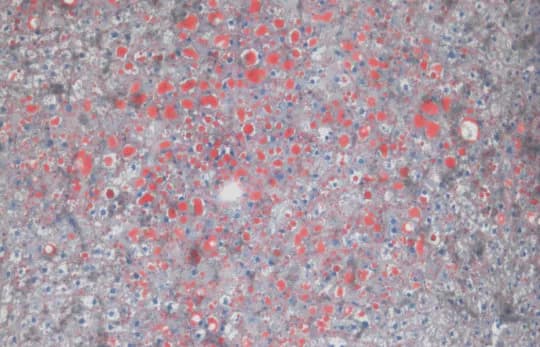Scientists at Helmholtz Zentrum München have new information on what happens at the molecular level when we go hungry. Working with the Deutsches Zentrum für Diabetesforschung (German Center for Diabetes Research -- DZD) and the Deutsches Krebsforschungszentrum (German Cancer Research Center -- DKFZ) they were able to show that upon deprivation of food a certain protein is produced that adjusts the metabolism in the liver. The results are published in the Open Access Journal 'EMBO Molecular Medicine'.
The growing number of overweight people has long been one of modern society's pressing issues. In particular the resulting metabolic diseases such as type 2 diabetes and corresponding secondary conditions can have serious consequences for health. A reduced intake of calories, such as in the framework of an intermittent fasting diet, can help to whip the metabolism back into shape -- but why does this happen?
This is the question that Prof. Dr. Stephan Herzig, Director of the Institute for Diabetes and Cancer (IDC) at the Helmholtz Zentrum München, and Dr. Adam J. Rose, head of the 'Protein metabolism in health and disease' research group at the DKFZ in Heidelberg, wanted to answer. "Once we understand how fasting influences our metabolism we can attempt to bring about this effect therapeutically," Herzig states.
Stress molecule reduces the absorption of fatty acids in the liver
In the current study, the scientists looked for liver cell genetic activity differences that were caused by fasting. With the help of so-called transcript arrays, they were able to show that especially the gene for the protein GADD45β was often read differently depending on the diet: the greater the hunger, the more frequently the cells produced the molecule, whose name stands for 'Growth Arrest and DNA Damage-inducible'. As the name says, the molecule was previously associated with the repair of damage to the genetic information and the cell cycle, rather than with metabolic biology.
Subsequent simulation tests showed that GADD45β is responsible for controlling the absorption of fatty acids in the liver. Mice who lacked the corresponding gene were more likely to develop fatty liver disease. However when the protein was restored, the fat content of the liver normalized and also sugar metabolism improved. The scientists were able to confirm the result also in humans: a low GADD45β level was accompanied by increased fat accumulation in the liver and an elevated blood sugar level.
"The stress on the liver cells caused by fasting consequently appears to stimulate GADD45β production, which then adjusts the metabolism to the low food intake," Herzig summarizes. The researchers now want to use the new findings for therapeutic intervention in the fat and sugar metabolism so that the positive effects of food deprivation might be translated for treatment.
The above post is reprinted from materials provided by Helmholtz Zentrum Muenchen - German Research Centre for Environmental Health. Note: Materials may be edited for content and length.
Disclaimer: DoveMed is not responsible for the adapted accuracy of news releases posted to DoveMed by contributing universities and institutions.
Primary Resource:
Fuhrmeister, J., Zota, A., Sijmonsma, T. P., Seibert, O., Cıngır, Ş., Schmidt, K., ... & Maida, A. (2016). Fasting‐induced liver GADD45β restrains hepatic fatty acid uptake and improves metabolic health. EMBO Molecular Medicine, e201505801.
Related Articles
Test Your Knowledge
Asked by users
Related Centers
Related Specialties
Related Physicians
Related Procedures
Related Resources
Join DoveHubs
and connect with fellow professionals


0 Comments
Please log in to post a comment.